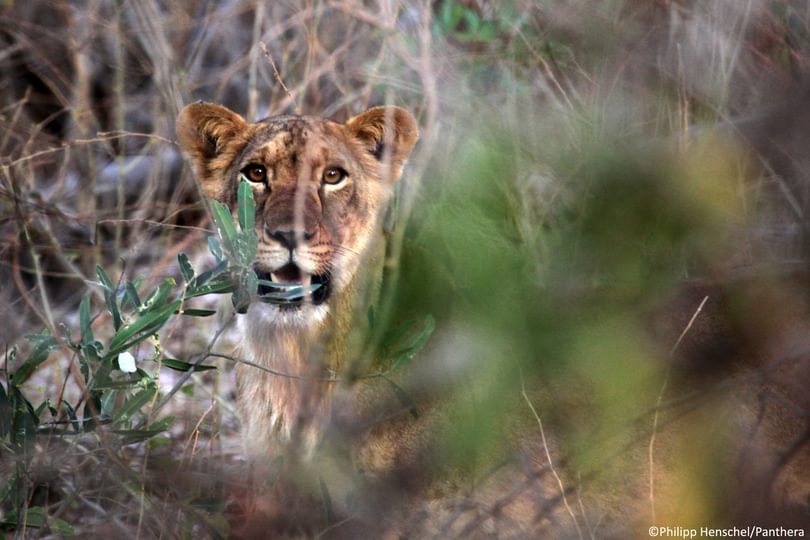
Lions are facing extinction across the entire West African region, a new paper co-authored by Oxford Martin fellow Dr Lauren Coad shows.
Experts say urgent intervention is needed to save the critically endangered West African lion, which is genetically distinct from the better-known lions of famous game parks in East and southern Africa. The West African lion once ranged continuously from Senegal to Nigeria, but the new paper reveals there are now only an estimated 250 adult lions restricted to four isolated and severely imperiled populations. Only one of those populations contains more than 50 lions.
Recent molecular research shows West African lions are closely related to the extinct 'Barbary Lions' which once roamed North Africa, as well as to the last Asiatic lions surviving in India. The team discovered that West African lions now survive in only five countries: Senegal, Nigeria and a single trans-frontier population on the shared borders of Benin, Niger and Burkina Faso.
The research was led by Dr Philipp Henschel, survey co-ordinator at Panthera, which devises and implements big cat conservation strategies, and co-authored by an international team including Oxford University’s Professor David MacDonald and Dr Coad. The report’s sobering results, published today in the scientific journal PLOS One, represent a massive survey effort taking six years and covering eleven countries where lions were presumed to exist in the last two decades.
Dr Henschel said: “When we set out in 2006 to survey all the lions of West Africa, the best reports suggested they still survived in 21 protected areas. We surveyed all of them, representing the best remaining lion habitat in West Africa. Our results came as a complete shock; all but a few of the areas we surveyed were basically paper parks, having neither management budgets nor patrol staff, and had lost all their lions and other iconic large mammals.”
Lions have disappeared across Africa as human populations and their livestock herds have grown, competing for land with lions and other wildlife. Wild savannas are converted for agriculture and cattle, the lion’s natural prey is hunted out and lions are killed by pastoralists fearing the loss of their herds.
Dr Coad, Oxford Martin fellow at Oxford's Environmental Change Institute (ECI), emphasised the need for international funding and support for West Africa’s protected areas. “Our findings suggest that many of the West African protected areas still supporting lion populations are chronically underfunded and understaffed. Many protected areas evaluated for this study did not have the capacity to undertake anti-poaching patrols, and as a result lion populations within their boundaries are under threat from poachers, who target both lions and their prey.”
Dereck Joubert of National Geographic’s Big Cats Initiative, which provided funding for the surveys commented; "This is critical work that confirms, scientifically, once again that we are underestimating the rate of decline and will require a global emergency intervention.”
Panthera’s President Luke Hunter, another of the paper's co-authors said saving the lions and other criticially endangered species would require "a massive commitment of resources from the international community".